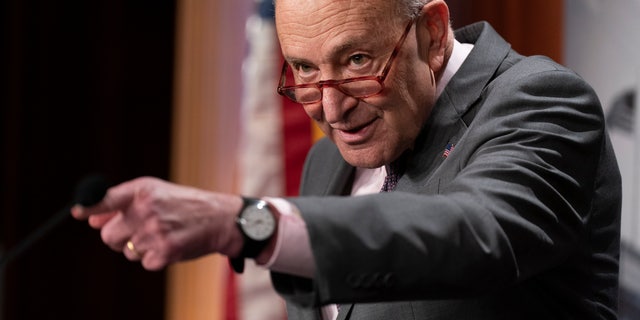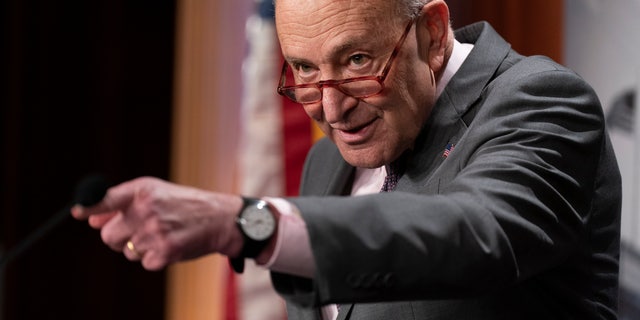
The Senate voted Wednesday to terminate two resolutions that have authorized the use of military force in and against Iraq for decades, which critics say have been used inappropriately to justify broader military efforts in the region.
The Senate repealed the 1991 authorization for use of military force (AUMF), which was used in the Gulf War to defend Kuwait against Iraq’s invasion, and the 2002 AUMF, which authorized military action against Iraq in the wake of the 9/11 terrorist attacks against the U.S.
The legislation from Sen. Todd Young, R-Ind., split Senate Republicans in the 66-30 vote to repeal the AUMFs. Young said it’s important to formally move on from the Gulf War and the Iraq War, and make it clear that Congress must be consulted when new conflicts arise instead of letting the Executive Branch lean on these past AUMF’s for military action.
“We’re going through the responsible, much-needed and much-neglected work of finally, legally bringing a war to a close,” Young said this month. A statement from Young’s office this month said ending the AUMFs would “reassert Congress’ constitutional role in deciding whether and when to send our service members into harm’s way and enhance the relationship the United States now has with a sovereign, democratic Iraq.”
BIDEN WARNED AS RUSSIA, CHINA FLEX MUSCLE IN MIDDLE EAST: ‘ALLIES MATTER’

Senate Majority Leader Chuck Schumer of N.Y., lauded the bipartisan effort that went into ushering the AUMF repeal through the upper chamber of Congress
But opponents argue the AUMFs are still critical for American deterrence against Iran. The 2002 AUMF was used as recently as 2020, when then-President Trump used it to justify the killing of a top Iranian military official, Qasem Soleimani.
Senate GOP Leader Mitch McConnell came out against the repeal effort on Tuesday for that reason.
“I am opposed to Congress sunsetting any military force authorizations in the Middle East. Our terrorist enemies aren’t sunsetting their war against us. And when we deploy our service members in harm’s way, we need to supply them with all the support and legal authorities that we can,” McConnell said.
COTTON ACCUSES PENTAGON OF ‘CONSCIOUS DECISION’ TO WITHHOLD INFO FROM CONGRESS TO INFLUENCE VOTE

Sens. Tim Kaine, D-Va., left, and Todd Young, R-Ind., introduced the measure in the 118th Congress
The Senate held several amendment votes after 18 Republican senators joined Democrats to move forward with the bill on Monday. Majority Leader Chuck Schumer, D-N.Y., lauded the bipartisan work that went into getting the legislation this far, but took a shot at some Republicans who pushed several amendment proposals.
“Repealing the Iraq AUMFs has been a good and reasonable process here on the floor,” Schumer said. “I hope this can be a method, a pattern, of what we do in the future. We are willing to allow amendments, but we must move forward. We cannot be dilatory. We cannot have amendments so extraneous they just bog down the whole process.”
The legislation does not affect the 2001 broad AUMF authorized by Congress that authorizes force against people and groups responsible for the 9/11 terrorist attacks. An amendment to include that measure in the bill, introduced by Sen. Rand Paul, R-Ky., was voted down 86 to 9.
SEN. HAWLEY CALLS FOR ‘TOUGH, TENACIOUS’ INSPECTOR GENERAL TO OVERSEE UKRAINE AID

Sen. Rand Paul, R-Ky., introduced an amendment that would have also repealed the 2001 AUMF over the September 11 terror attacks (Joe Raedle/Getty Images)
CLICK HERE FOR THE FOX NEWS APP
The bill’s next stop is the House of Representatives. Last week, Speaker Kevin McCarthy, R-Calif., signaled he would support the bill in comments to reporters.








